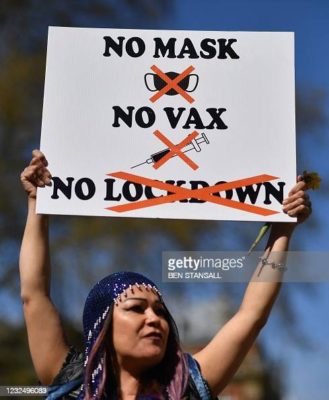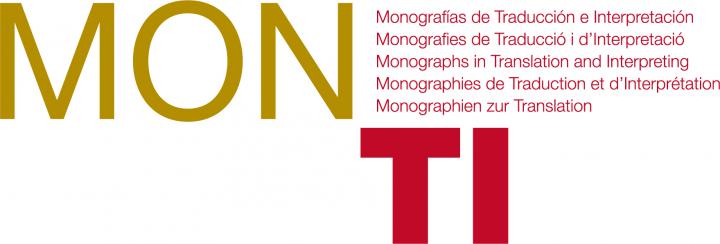Research Team
Mona Baker
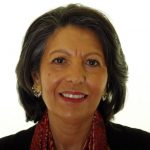
Mona Baker is Emeritus Professor of Translation Studies at the Centre for Translation and Intercultural Studies, University of Manchester, UK, Principal Investigator on the AHRC-funded project Genealogies of Knowledge: The Evolution and Contestation of Concepts across Time and Space, and co-editor, with Luis Pérez-González and Bolette Blaagaard of the Routledge series Critical Perspectives on Citizen Media. She is author of In Other Words: A Coursebook on Translation (Routledge, 1992; second edition 2011) and Translation and Conflict: A Narrative Account (Routledge, 2006), Editor of Translating Dissent: Voices from and with the Egyptian Revolution (Routledge, 2016), the Routledge Encyclopedia of Translation Studies (1998, 2001; second edition, co-edited with Gabriela Saldanha, 2009); Critical Concepts: Translation Studies (4 volumes, Routledge, 2009); and Critical Readings in Translation Studies (Routledge, 2010). Her articles have appeared in a wide range of international journals, including Social Movement Studies, Critical Studies on Terrorism, The Translator and Target. She is founding Editor of The Translator (St. Jerome Publishing, 1995-2013), former Editorial Director of St. Jerome Publishing (1995-2013), and founding Vice-President of IATIS, the International Association for Translation & Intercultural Studies (2004-2015).
Luis Pérez-González

Luis Pérez-González is Professor of Translation Studies and Co-Director of the Centre for Translation and Intercultural Studies at the University of Manchester, UK. He is co-investigator on the AHRC-funded project Genealogies of Knowledge: The Evolution and Contestation of Concepts across Time and Space and a research associate of the Manchester-led multi-site research consortium on Cross-language Dynamics: Re-shaping Communities, funded by the Arts and Humanities Research Council’s Open World Research Initiative. He is the author of Audiovisual Translation: Theories, Methods and Issues (Routledge, 2014), former Editor of The Interpreter and Translator Trainer (St Jerome Publishing), and a co-editor of Routledge’s Critical Perspectives on Citizen Media series. He is currently editing The Routledge Handbook of Audiovisual Translation (2016), having previously guest-edited special issues of The Journal of Language and Politics 11(2) (Translation and the Genealogy of Conflict, 2012) and The Translator 18(2) (Non-professionals Translating and Interpreting: Participatory and Engaged Perspectives, 2012, with Şebnem Susam-Saraeva). He is serving as Leader of the Translation and Interpreting Studies Pathway in the AHRC’s North West Consortium Doctoral Training Partnership and is a member of the ARTIS (Advancing Research in Translation and Interpreting Studies) Steering Board.
Stephen Todd
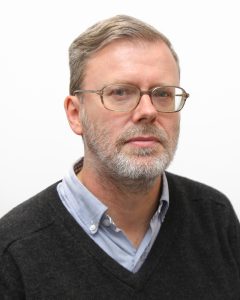
Stephen Todd has been Professor of Ancient History at the University of Manchester since 2006. He is a philologically-trained Classicist, with research interests in Athenian oratory and in the legal, social and political history of classical Athens. Major publications include The Shape of Athenian Law (OUP, 1993) and A Commentary on the Lysias, Speeches 1-11 (OUP, 2007). With the help of funding over recent years from a Loeb Classical Library Foundation Fellowship and from a British Academy Senior Research Fellowship, he is currently working on the second volume of his Lysias commentary, which is due to be delivered to OUP in 2019. He was for ten years a member of the editorial board of the Journal of Hellenic Studies, and is currently a member of the comitato scientifico for Dike: rivista di storia del diritto greco ed ellenistico, as well as being a regular contributor to the Symposia of the Gesellschaft für griechische und hellenistische Rechtsgeschichte. For the Genealogies project, he has particular responsibility for the Greek and Latin corpora, and particular research interests in the constellation of concepts involving the body politic.
Saturnino Luz

Saturnino Luz is a Chancellor’s Fellow at the University of Edinburgh, and a co-investigator on the Genealogies of Knowledge project. His reseach interests include machine learning, corpus-based natural language processing, and interfaces for visualisation of textual and temporal information, and applications of these methods in the area of medical informatics. He has published extensively in these areas. Dr. Luz was a principal investigator in the Centre for Next Generation Localisation (CNGL, now ADAPT Centre), and has served in the programme committees of several international conferences and in the editorial board of a number of scientific journals.
Kamran Karimullah

Kamran Karimullah joined the University of Manchester as a lecturer in Islamic philosophy and medicine in 2016. He has published in the fields of Islamic philosophical ethics, philosophy of logic and Islamic medicine. At the moment, he is writing a monograph-length genealogy of Avicenna’s (d. 1037) logical theory of ifs. In it he hopes to show how Avicenna’s pioneering logical doctrines relating to conditional propositions draw on Greek, Arabic and even Syriac debates about and classifications of logical inference. In medical translation studies, he is interested in tracing how pre-modern Arabic medical texts influenced the reception, conceptualisation and translation of European medical texts in early modern medical schools and institutions of learning in the Middle East.
Henry Jones
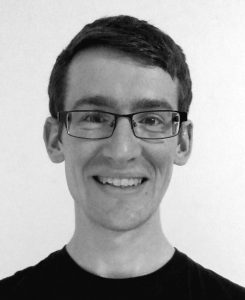
Henry Jones is a Post-Doctoral Research Associate at the University of Manchester’s Centre for Translation and Intercultural Studies. His current research interests include corpus-based translation studies, the reception of Classical Greek philosophy in nineteenth century Britain and retranslation theory. Having joined the Genealogies of Knowledge project in April 2017, he has been closely involved in the construction of the GOK Modern English corpus as a resource for scholars interested in the role of translation and other sites of mediation in the historical evolution and contestation of political and scientific discourse.
Jan Buts

Jan Buts is a Ph.D. student with a background in English and Dutch linguistics and literature. His current project, Prefiguring the Body Politic: Continental Philosophy and Online Alternative Media, focuses on the political significance of structural features of language. The project employs the Genealogies of Knowledge Modern and Internet subcorpora to trace the recent trajectory of three concepts – community, democracy, and politics. These concepts’ linguistic positioning is studied especially in translations from late twentieth century French philosophy and in a selection of online publications on activism. By thus charting how the idea of the body politic is conceptualised in these texts, the research project attempts to reassess the relation between discourse and direct action.
Advisory Board
Guyda Armstrong

Guyda Armstrong is Senior Lecturer in Italian and Faculty Academic Lead for Digital Humanities at the University of Manchester. Her research is primarily focused on materiality and translation, and she has published extensively on early Italian literature and its translation and transmission across languages, cultures, and media from the medieval period to the present day. Her wider research interests include early modern print cultures, visual design, digital humanities, and gender. She is the author of The English Boccaccio: A History in Books (UTP, 2013, paperback edition 2015), and co-editor of the new Cambridge Companion to Boccaccio (2015). She is currently completing a new edition of the 1620 English translation of Boccaccio’s Decameron for the MHRA, and will shortly begin work as Co-I on the AHRC-funded project Petrarch Commentaries and Exegesis in Renaissance Italy, c. 1350-1650 with colleagues in Warwick and Leeds.
Stuart Jones
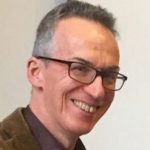
Stuart Jones is Professor of Intellectual History at the University of Manchester. His research interests focus on the history of political thought and of political concepts in modern Europe, on the history of universities, and on the emergent field of the history of the humanities. He is the author of The French State in Question (1993), Victorian Political Thought (2000), and Intellect and Character in Victorian England: Mark Pattison and the Invention of the Don (2007). He has also translated and edited the political writings of Auguste Comte, and co-edited a volume on pluralism in modern France. He convenes a research network on the history of the humanities, and chairs the University’s Research Group on University History. His main current project is a political and intellectual biography of James Bryce (1838-1922), the jurist, historian, humanitarian campaigner, cabinet minister, and UK ambassador to Washington. Professor Jones serves as Associate Dean for Postgraduate Research in the Faculty of Humanities.
David Langslow

David Langslow is Professor of Classics at the University of Manchester. His interests include Ancient Greek and Latin special and technical languages and language contact in the Greek and Roman worlds down to the early medieval period in the West. His first book, Medical Latin in the Roman Empire, was inspired by the question what are the possible and the preferred means of extending the expressive means of a language so as to refer to and discuss new special and technical things. This led to the particular instance of the extension of the Latin language in the first century AD to accommodate the essentially Greek science of medicine, and to general questions around the translating of science. This led in turn on the one hand to wide ranging work on multilingualism as reflected in corpus languages, and on the other to the very particular undertaking (in progress) of the first critical edition of the Latin version of the medical works of the canonical Greek doctor Alexander of Tralles (5th/6th c. AD).
Maeve Olohan

Maeve Olohan is Senior Lecturer in Translation Studies and Co-Director of the Centre for Translation and Intercultural Studies at the University of Manchester. Her recent research has focused both on the translation of science in historical contexts and on the workplace practices of today’s translation professionals. The common thread running through these studies is the conceptualisation of translation as practice and a concomitant interest in the socialities and materialities of translation, explored further in a monograph on practice-theoretical approaches to translation (Routledge, in preparation). She is the author of Scientific and Technical Translation (2016) and Introducing Corpora in Translation Studies (2004) and editor of Intercultural Faultlines: Research Models in Translation Studies (2000). In 2011 she co-edited, with Myriam Salama-Carr, a special issue of The Translator 17(2) on science in translation. She serves on the AHRC Peer Review College, the Board of the European Masters in Translation and the Steering Board of ARTIS (Advancing Research in Translation and Interpreting Studies).
Mathew Philpotts
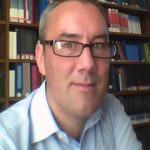
Matthew Philpotts is Professor of German Cultural History and Head of Modern Languages and Cultures at the University of Liverpool. One of his principal research interests is the active agency of periodical publications, especially literary and intellectual journals, in the construction and circulation of ideas and in processes of cultural change. Having completed a periodisation project on the mid-twentieth-century (The Modern Restoration: Re-Thinking German Literary History, 2004) he co-authored with Stephen Parker the first book-length study of the legendary East German journal Sinn und Form (Anatomy of a Literary Journal, 2009). Working comparatively and adopting a sociological approach to cultural and intellectual history, he has continued to work in recent years to conceptualise the emerging field of periodical studies, editing a special ‘Theory’ issue of the Victorian Periodical Review (2015). He is a member of the core group of the European Society for Periodical Research (ESPRit) and an editor of the Journal for European Periodical Research (JEPS). He is currently completing a monograph exploring the distinctive role played by editors of intellectual magazines in twentieth-century Europe.
Myriam Salama-carr
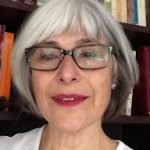
Myriam Salama-Carr is Honorary Research Fellow at the Centre for Translation and Intercultural Studies, SALC. Her research focuses on the history of translation, with particular focus on the translation of science and the transmission of knowledge. She is the author of La Traduction à l’époque abasside (Didier Erudition 1990) and the editor of Translating and Interpreting Conflict (Rodopi 2007) and of a special issue of Social Semiotics on Translation and Conflict (2007). She has co-edited a special issue of Forum (2009) on Ideology and Cross-Cultural Encounters, and of The Translator (2011) on Translating Science. She is investigator in a QNRF-funded project on the construction of an anthology of the Arabic Discourse on Translation (2015-2018) and co-editor of a Handbook on Languages at War (Palgrave series on Languages at War) to be published in 2018. She is the Director of the National Network for Translationand Chair of the Training Committee on IATIS.
Former Co-Investigator (April 2016-September 2017)
Peter Pormann

After studying Classics, French, and Islamic Studies in Paris (Sorbonne), Hamburg, and Tübingen, I took an MA in Islamic Studies at the University of Leiden, and an M.Phil. and D.Phil in Classics at the University of Oxford (Corpus Christi College). As an undergraduate, my prime motivation in choosing Classics was to understand ‘our’ Western culture, for surely its two main roots were Graeco-Roman Antiquity and the Judaeo-Christian tradition. Little did I know that a third ‘root’, Islamic culture, is intrinsically linked to our own tradition, a fact conveniently forgotten by ideologues of different persuasions. My teaching and research therefore tries to rectify this misconception by investigating the many contacts between Muslims, Jews, and Christians writing in Greek, Latin, Hebrew, and Arabic, be it in the tenth or the twentieth century.

